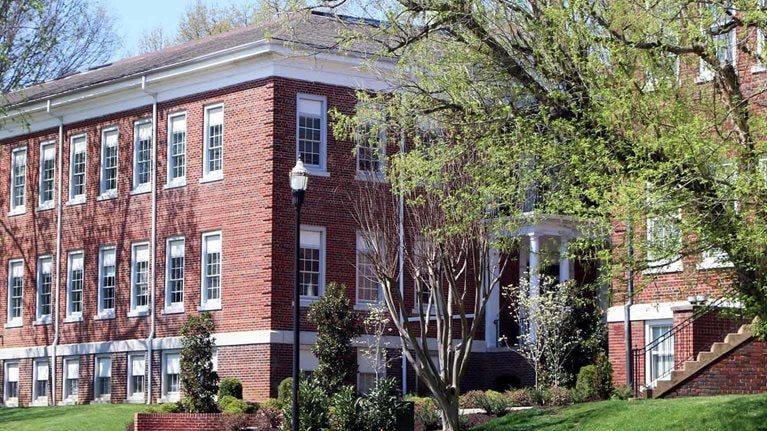Zhang Xu is the executive vice president and chief operating officer of China Vanke. Founded in 1984 and based in Shenzhen, China, Vanke is one of China’s biggest real-estate companies (2015 revenues: $29.3 billion). In addition to its operations in more than 60 Chinese cities, Vanke also does business in Hong Kong, London, New York, San Francisco, and Singapore.
Stay current on your favorite topics
In this interview with Guangyu Li, a senior partner in McKinsey’s Shanghai office, Zhang Xu explains Vanke’s global strategy.
McKinsey: Why did Vanke decide to enter the global real-estate market at a time when the residential market in China was in its “golden decade”?
Zhang Xu: It all comes down to Vanke’s DNA as a learning organization, though we didn’t quite figure out what exactly we wanted to achieve until we had done much exploration and experimenting. I once tried to build a seven-person pilot team to take the first steps overseas, but as it turned out, none of them wanted to go. Of course, it’s understandable. The Chinese market is so big and lucrative. Why would anyone want to go to a foreign land and build everything from the ground up?
McKinsey: So how have you developed your overseas strategy and found the breakthrough point?
Zhang Xu: We spent the whole of 2012 doing our homework. First, we interviewed the top ten US residential developers to understand how the market works. We thought about equity investment and buying shares of listed real-estate companies, and we considered the conventional Chinese approach of sending someone over to build the business. But these options were all vetoed as either against Vanke’s values or beyond our capability.
But by ruling out what was impossible, we figured out what we wanted to do. And put simply, it was to learn. That started with understanding how the industry will evolve. American cities are 100 years ahead of Chinese cities, and business models have progressed with urbanization. So we looked at how industries and cities have progressed with urbanization in the US, and that gives us an idea of what will become of China. We also picked the brains of leading companies on businesses and models that have enabled our peers to survive the economic cycles; this eventually translated into concrete plans for our overseas operations.
McKinsey: Has overseas expansion led to any strategic gains?
Zhang Xu: Staying close to overseas markets has helped us to identify future trends back at home. What we’ve seen and learned during the process is embedded in the transformation agendas outlined in our new ten-year strategy.
We’ve seen how urbanization and industrial upgrading can affect the real-estate industry in a mature market. That’s the biggest strategic gain. New property needs have emerged as the industrial age gives way to the age of finance and services. That is why we’ve decided to move away from property development alone to become an urban facilities and services provider. We are also monitoring the many opportunities that come with urban planning and investment in big-city renovation and the development of industry clusters. All will have a direct impact on Vanke’s future strategy.
The second strategic gain is about business models. We are convinced that commercial property will remain the way to go, particularly from the perspective of asset management. What we’ve discovered about holding and operating real-estate investment trusts [REITs] is that real-estate finance can lead to another, broader world. In the United States, institutional investors take up half of the market, REITs 20 percent, and developers a mere 10 percent. Operating-asset managers take a much larger share than developers, and residential developers are by no means the ones with the highest market capitalization. In China, real-estate finance is still in its infancy, but the property industry will increasingly connect with capital and finance, and move toward asset management. The future size of China’s asset-management market can be enormous.

Understanding real estate as an investment class
McKinsey: Was it difficult for Vanke to make this strategic shift?
Zhang Xu: This has been a very difficult move. Some people may ask, “Why are you risking profit and asking for trouble with new business, when it is so easy to reap profit from land purchase and new construction?” But we must have the courage to step out of our comfort zone and walk a different path. We did have arguments over our ten-year strategy, and it was such a big fight that we extended the original plan of discussion from 4 months to 18 months. We finally reached consensus. In the future, Vanke will focus on two business pillars—real estate and urban facilities and services—rather than only focusing on residential developments.
McKinsey: What kind of governance system does Vanke have for its overseas operations?
Zhang Xu: Sometimes the best management is no management at all. Real estate is a very local business, and from the very beginning, we decided to build completely local teams, rather than sending a Chinese team from home as we did in the past. When I say “local,” that does not mean that we simply recruit Americans in the United States. If we are selling houses in New York, we target New Yorkers, because the US real-estate industry is highly fragmented. There are 200 to 300 small developers in New York City alone, so our people must know everything about each block.
In terms of organizational structure, the US office is placed under Vanke’s Department of Strategic Investment, and headquarters retains only strategic oversight of its direction. We offer partnerships to attract talent, so that staff can grow from professional managers to become partners of Vanke, and so act in accordance with the company’s general interests.
McKinsey: What can other Chinese real-estate companies learn from Vanke’s experiences?
Zhang Xu: There’s no right or wrong way, but the key is to think twice before you leap and to figure out what you’re trying to accomplish. It could be that you want to expand market share, export products and construction models, and diversify asset allocation. Or it could be that you want to learn and build new capabilities; that is our goal. Once you know where you’re going with your strategy, you will have a clear idea of what means would be best to help you deploy overseas operations.
We have a step-by-step approach for our overseas expansion. First, we learn from mature markets’ business model and management experience. Second, we find the best partners to leverage the best resources and capabilities for Vanke. Third, we scale up the Western business model to turn the overseas office into a profit center.
McKinsey: In broad terms, what are Vanke’s future plans?
Zhang Xu: We believe our overseas business will account for at least 20 percent of our total assets, compared with less than 5 percent now, so there is much room to develop. Our business will also be more diversified. In the future, the income of China’s middle class will outrun that of Europe and the United States, driving consumption and opportunity. For example, the number of skiers and divers in China is growing by 40 percent a year, creating great opportunities to develop new customer experiences and commercial property to support these pastimes. Learning best practices from abroad can help Vanke to enter more specialized areas and thus broaden our prospects in different ways.


